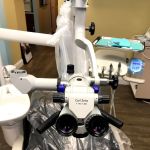How to Maintain Dental Health with Dentures
Maintaining dental health is essential, even after getting dentures. While dentures may restore your smile and help you chew, they also come with their own set of responsibilities. It’s important to understand how to care for dentures properly to avoid problems such as discomfort, infection, or gum irritation. This article will guide you through the best practices for maintaining your dental health while wearing dentures. Whether you're a new denture wearer or have had them for years, following these tips will help ensure your oral hygiene remains optimal.
1. Clean Your Dentures Regularly
The first and most obvious step to maintaining your dental health with dentures is to clean them regularly. Just like natural teeth, dentures can accumulate plaque, food particles, and bacteria. Failing to clean your dentures properly can lead to oral infections or gum irritation. Ideally, you should brush your dentures at least once a day using a soft-bristled brush and non-abrasive toothpaste. Using abrasive toothpaste can scratch the surface of your dentures, making them more prone to collecting plaque and staining.
Additionally, it’s important to rinse your dentures after eating to remove any food particles. For a deeper clean, soak your dentures overnight in a denture cleaner solution. This helps remove any remaining bacteria and stains, ensuring that your dentures remain fresh and clean. When cleaning dentures, be gentle to avoid accidental damage.
2. Take Care of Your Gums and Mouth
While cleaning your dentures is important, taking care of your gums and the rest of your mouth is just as crucial. Your gums need to be healthy in order to support your dentures and ensure a proper fit. After removing your dentures, rinse your mouth with warm water or an antimicrobial mouthwash to remove bacteria and keep your gums healthy. You can also use a soft toothbrush to gently brush your gums and tongue to stimulate blood circulation and remove any buildup of bacteria.
It’s also essential to give your gums a rest from dentures. Denture-wearers should remove their dentures at night to allow their gums to breathe and recover. This practice can prevent gum irritation and help maintain proper alignment of your dentures over time. Be sure to follow your dentist’s recommendations about how long to wear your dentures each day.
3. Schedule Regular Dental Checkups
Even if you wear dentures, regular dental checkups are necessary to ensure your overall oral health remains in top condition. Your dentist will examine your gums, mouth, and dentures to ensure that everything is functioning properly. Over time, the shape of your gums and jawbone can change, which may cause your dentures to fit improperly. A poorly fitting denture can lead to discomfort, sore spots, and even more serious oral health issues.
During your checkup, your dentist may recommend relining or remaking your dentures if they show signs of wear or if they no longer fit correctly. Regular visits also allow your dentist to detect any signs of infection, oral cancer, or gum disease, which may not always be noticeable to the wearer. So, don't skip these essential appointments!
4. Avoid Certain Foods and Habits
While dentures offer great functionality, they still require careful attention to avoid damage or wear. Certain foods and habits can put unnecessary stress on your dentures and may lead to issues such as cracks or loss of fit. For example, biting into hard foods, like nuts or raw vegetables, can break or damage your dentures. Similarly, sticky foods like caramel or chewing gum can get stuck on your dentures and cause buildup that's difficult to remove.
It's also important to avoid using your dentures to bite or chew on non-food items, such as pens, pencils, or nails. This can cause fractures and reduce the lifespan of your dentures. Lastly, smoking can stain your dentures and lead to health issues, including gum disease. To keep your dentures in top condition, try to limit these damaging habits and be mindful of the foods you consume.
5. Use Proper Storage Techniques
When you're not wearing your dentures, it's essential to store them properly to maintain their shape and hygiene. Always store your dentures in a clean, dry place, such as a denture case, when you're not wearing them. Never leave your dentures out in the open where they can get dirty or damaged. If you're soaking them, ensure that the denture solution completely covers them to prevent warping.
It’s also important to never let your dentures dry out completely. Just like your gums, dentures need moisture to maintain their flexibility and fit. If you leave your dentures out of water for extended periods, they may become brittle or warped, leading to discomfort and difficulty wearing them. Always follow the storage recommendations provided by your dentist or denture care instructions.
6. Adjustments and Repairs
Over time, your dentures may require adjustments or repairs. As you wear them, changes in the shape of your gums and jawbone can affect the fit of your dentures. If your dentures begin to feel loose, uncomfortable, or cause sore spots, it’s time to visit your dentist for an adjustment. A poorly fitting denture can lead to additional issues, such as gum irritation, difficulty chewing, or even mouth infections.
If your dentures crack, chip, or break, don't try to repair them yourself. DIY repairs can cause further damage and result in more costly repairs. Instead, bring your dentures to a professional for proper repairs or replacement. Regular maintenance and timely adjustments will help ensure that your dentures continue to fit well and support your oral health effectively.
Conclusion: Prioritize Dental Health with Dentures
Maintaining dental health with dentures is a crucial part of keeping your smile bright and your mouth healthy. By following proper cleaning, maintenance, and storage techniques, you can ensure that your dentures continue to function properly and fit comfortably. Regular dental checkups and timely adjustments are essential to prevent any long-term issues and maintain optimal oral health.
If you're in need of professional assistance with your dentures or have questions about your oral care routine, don’t hesitate to reach out to [Dentistry Toothtruth](#) for personalized advice and services that suit your needs.
SEO Title: How to Maintain Dental Health with DenturesSEO Keywords: dental health with dentures, denture care, clean dentures, denture maintenance, oral health with denturesSEO Description: Learn how to maintain dental health with dentures by following proper care, cleaning, and maintenance practices. Keep your smile bright and your dentures in top condition.






 Valleywise Community Health Center - Mesa3.0 (252 review)
Valleywise Community Health Center - Mesa3.0 (252 review) Hillcrest Dental Group, P.A.4.0 (826 review)
Hillcrest Dental Group, P.A.4.0 (826 review) Henry J. Austin Health Center at Ewing Street3.0 (33 review)
Henry J. Austin Health Center at Ewing Street3.0 (33 review) Atwood Aaron DDS3.0 (18 review)
Atwood Aaron DDS3.0 (18 review) South Shore Dental Care: Dory Stutman, DDS5.0 (7 review)
South Shore Dental Care: Dory Stutman, DDS5.0 (7 review) Steven L Kim DDS5.0 (59 review)
Steven L Kim DDS5.0 (59 review) The Importance of Oral Health Education During Pregnancy for a Healthy Pregnancy
The Importance of Oral Health Education During Pregnancy for a Healthy Pregnancy Best Tips for Brushing Your Teeth Properly for Healthy Gums: Essential Techniques for Oral Health
Best Tips for Brushing Your Teeth Properly for Healthy Gums: Essential Techniques for Oral Health Why Skipping Dental Checkups Can Lead to Bigger Oral Health Problems
Why Skipping Dental Checkups Can Lead to Bigger Oral Health Problems Advantages of Porcelain Dental Restorations
Advantages of Porcelain Dental Restorations How Can Diabetes Cause Tooth and Gum Problems? Preventing and Managing Oral Health Issues
How Can Diabetes Cause Tooth and Gum Problems? Preventing and Managing Oral Health Issues Healthy Habits for Promoting Good Oral Health and Hygiene: Tips for a Healthy Smile
Healthy Habits for Promoting Good Oral Health and Hygiene: Tips for a Healthy Smile